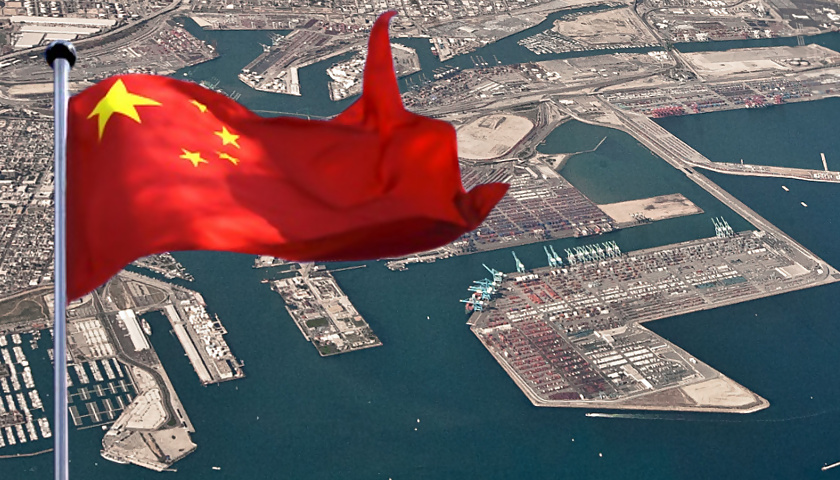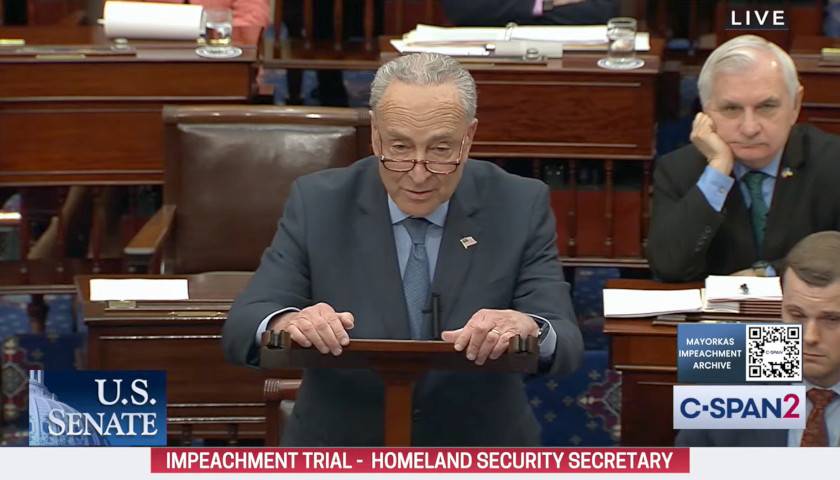By Printus LeBlanc
The U.S. is on the cusp of allowing the Communist Chinese government a strategic foothold on the homeland. China must not be permitted to purchase the operating rights to the Port of Long Beach.
While the mainstream media is concentrating on what salad dressing the President uses and encourages people to harass politicians they disagree with; the world keeps spinning. Not only is the world still spinning, but the global powers are maneuvering to challenge the U.S., and all we talk about is the First Lady’s jacket.
One of the chief misconceptions about the Port of Long Beach sale is about the two companies involved. Most people believe the issue is just one Chinese firm taking over from another Chinese company. Technically that is true, but one must look at the difference between the two companies to see what is going on.
Last July, Shanghai-based China COSCO submitted a $6.3 billion bid to buy Hong Kong-based Orient Overseas Container Line (OOCL). OOCL is a 70-year-old company founded by C.Y. Tung. It became the first Asian-based shipping line to transport containerized cargo across the Pacific.
In 2012, OOCL signed a 40-year lease worth $4.6 billion to develop the Long Beach Port property. OOCL tripled the size of the port’s container capability, with over 2,000 vessels visiting the port processing 6.8 million container units. OOCL has been a good steward of the port with no controversy associated with the company.
COSCO is a Chinese government-owned conglomerate. The company has dozens of subsidiaries and divisions focusing on logistics, shipping, equipment manufacturing, financial services and information technology. In July last year, the company submitted a bid to purchase OOCL for $6.3 billion.
If China COSCO’s direct connection to the Chinese Communist government doesn’t concern enough, the company has also had some nefarious dealings. In 2015 one of COSCO’s ships was detained in Colombia as it was making its way to Cuba. Upon inspection, Colombian authorities found 100 tons of gunpowder, 2.6 million detonators, 99 projectiles, and thousands of cannon shells, according to Luis Gonzalez, national director of the Colombian attorney general’s office. Yet the manifest had the arms and equipment labeled as “grain products.”
The undeclared military equipment was in crates labeled China North Industries Group Corporation or Norinco. The company just happens to be China’s biggest arms maker. Is it smart to let a Chinese government-controlled shipping company have control over a strategic U.S. port, especially when the same Chinese company has deep ties with the Chinese arms manufacturers?
This is the same Chinese government responsible for dozens of hacks and spying operations, targeting the U.S. defense industry. The communist government has been assaulting the defense industry, stealing hundreds of billions of dollars in trade secrets. The People’s Liberation Army (PLA) has been able to make staggering technological advancements because of the theft. The F-35, V-22, Terminal High Altitude Area Defense, and Aegis Ballistic Missile Defense System are just a few of the systems compromised by Chinese espionage efforts. After the unprecedented level of spying, why would the U.S. invite the perpetrator onto U.S. soil?
The attempted Chinese purchase of the port operations fits a pattern for the Chinese government. The Communist regime has undertaken an ambitious global project known as the Belt and Road Initiative (BRI). The initiative is a series of Chinese controlled ports, railways, and highway projects connecting 65 percent of the global population and 40 percent of global GDP.
China is using the BRI to influence policies of the nations the belt passes through, as it did with Greece last Summer. Greece refused to back the European Union’s attempt to criticize China’s human rights record, marking the first time the union failed to make its statement at the U.N.
The addition of the Long Beach Port implies the Chinese government may want to extend the belt to the Western Hemisphere. Perhaps we shouldn’t make it so easy for them.
– – –
Printus LeBlanc is Director of Public Policy at Americans for Limited Government.




